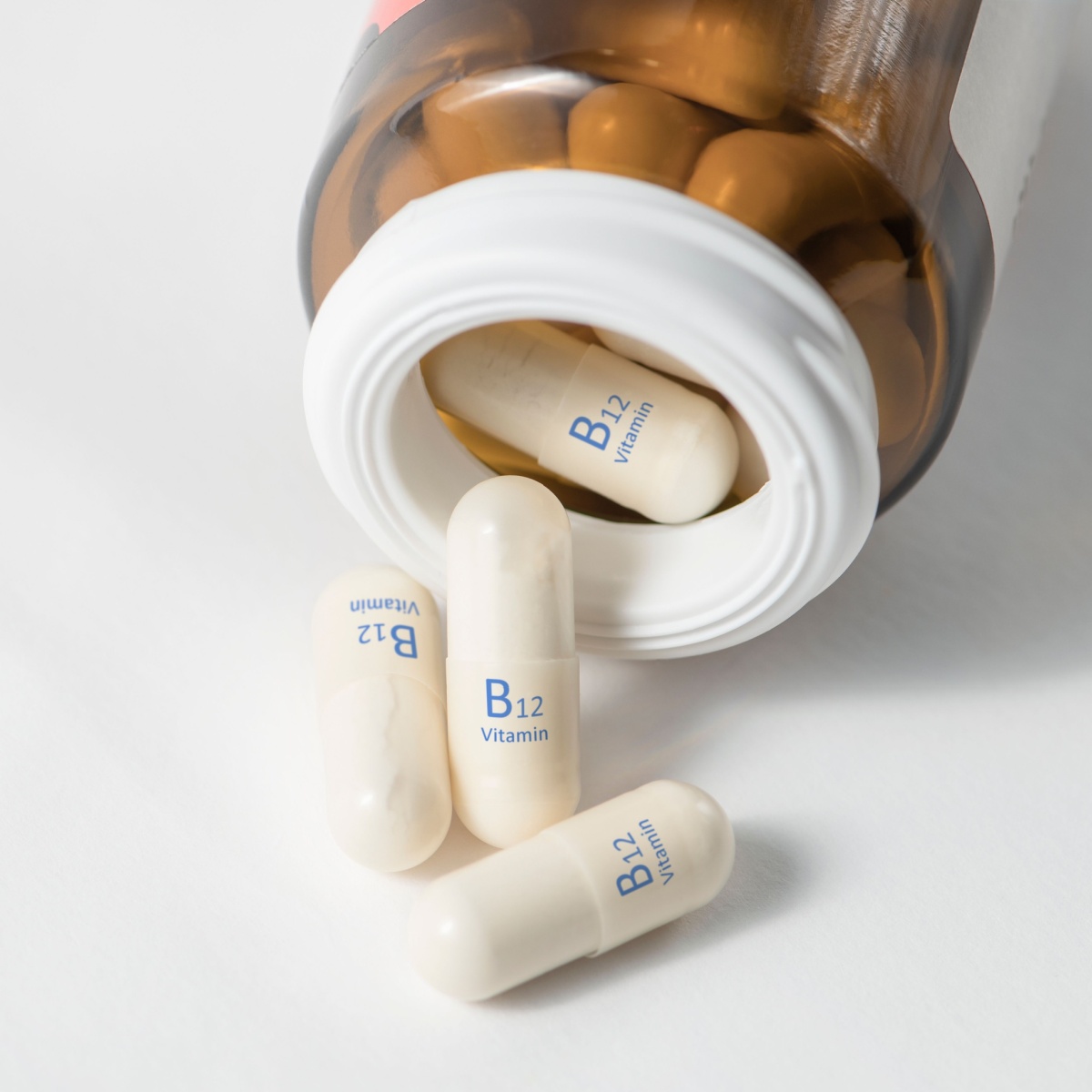
Vitamin B12
While vitamin B12 is essential for overall health, excess or imbalanced levels of B12 can lead to negative effects on the skin.
One of the side effects is that taking too much of it can disrupt the bacteria on the skin.
It can also create increased skin sensitivity and interfere with the body’s ability to properly regulate hydration.
“Research out of UCLA finds that those who take vitamin B12 supplements can have acne or increased acne,” he reveals. “I don’t recommend B12 supplements; instead, take a whole B complex.” He says this will be much healthier for the brain, your body, and even better for your skin.
Always check with a healthcare provider before starting or adjusting your B12 intake to ensure it supports your health and skin needs.
Iron
When iron builds up in tissues, it can cause oxidative stress, which damages collagen and elastin—the proteins responsible for keeping skin firm, elastic, and youthful.
“Most people in the United States don’t need iron,” he reveals. Love adds that only 2% of men and around 10-20% of women are deficient in iron. “If you’re eating eggs or meat, then you’re likely not deficient in iron, but of course check with your medical professional.”
He further adds that iron can “create excess free radicals, and that can damage organs in your body like your skin,” noting that by not taking iron supplements, you can protect yourself from “premature aging.”
Avoid over-supplementing with iron and always consult with a healthcare professional if you suspect iron deficiency.
Instead, try vitamin C because it’s essential for collagen synthesis, helping to maintain skin elasticity and firmness. You could also try taking zinc as that can play a key role in tissue repair, reducing inflammation, and maintaining a clear complexion.


